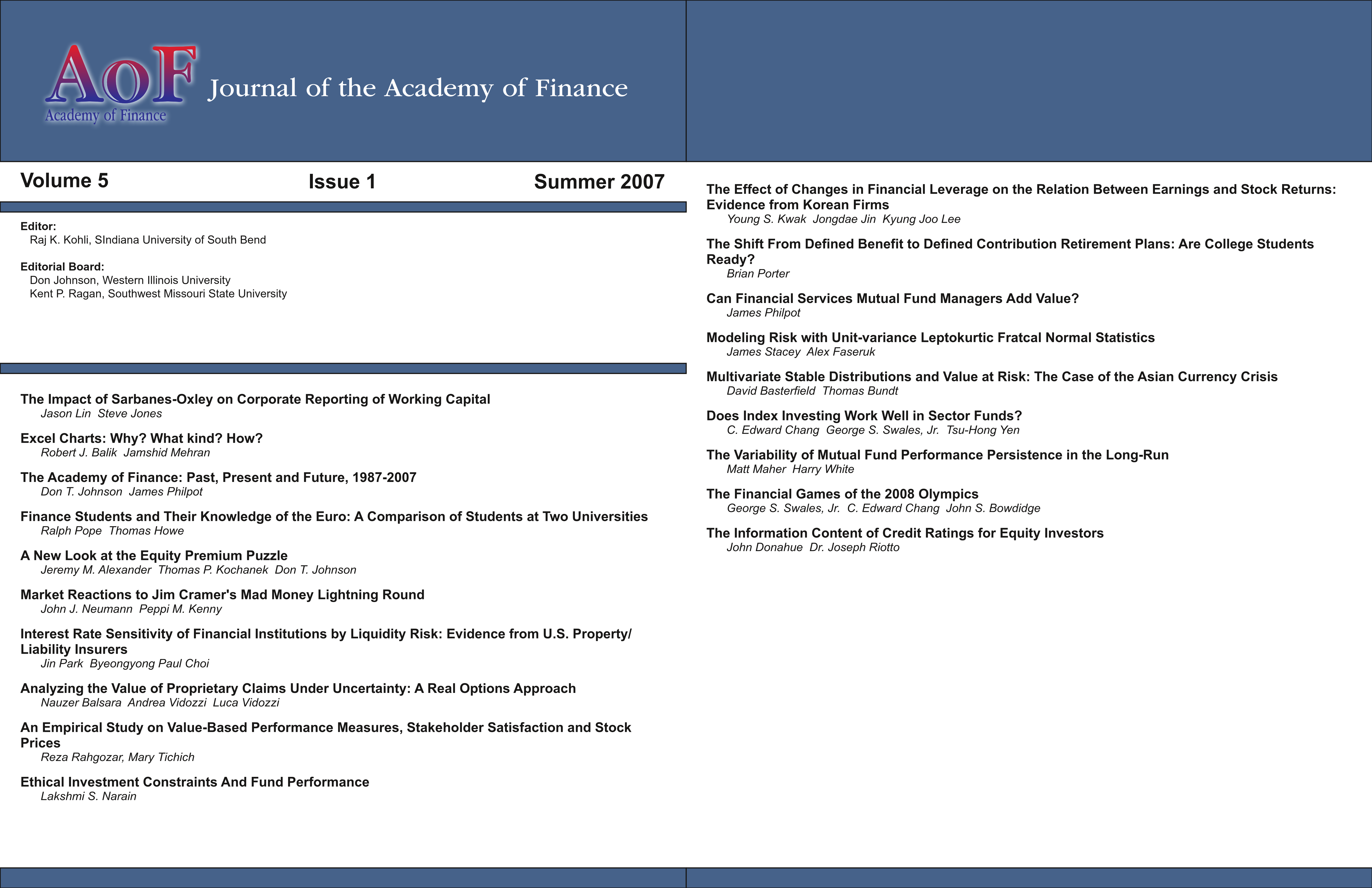The Effect of Changes in Financial Leverage on the Relation , Between Earnings and Stock Returns: Evidence from Korean Firms
DOI:
https://doi.org/10.58886/jfi.v5i1.2594Abstract
This study examines whether a firm's default risk as measured by its financial leverage affects the relationship between accounting earnings and stock returns, viz., the earnings response coefficient (ERC). From analytical results, we hypothesize that the ERC is a negative function of the firm's default risk. We test this hypothesis by comparing the ERC’s between pre-change and post-change period, using a sample of Korean firms that experienced changes in their financial leverages through either the issue of new debt or the retirement of outstanding debt. The empirical results indicate that the ERC's have decreased for the issue of new debt, but increased for the retirement of outstanding debt from pre-change to post-change period. Furthermore, these shifts in the ERC's are statistically significant, even after controlling for the differences in the systematic risk and growth between pre-change and post-change period. Overall, our findings suggest that the default risk is an important factor affecting the ERC for the Korean firms.





